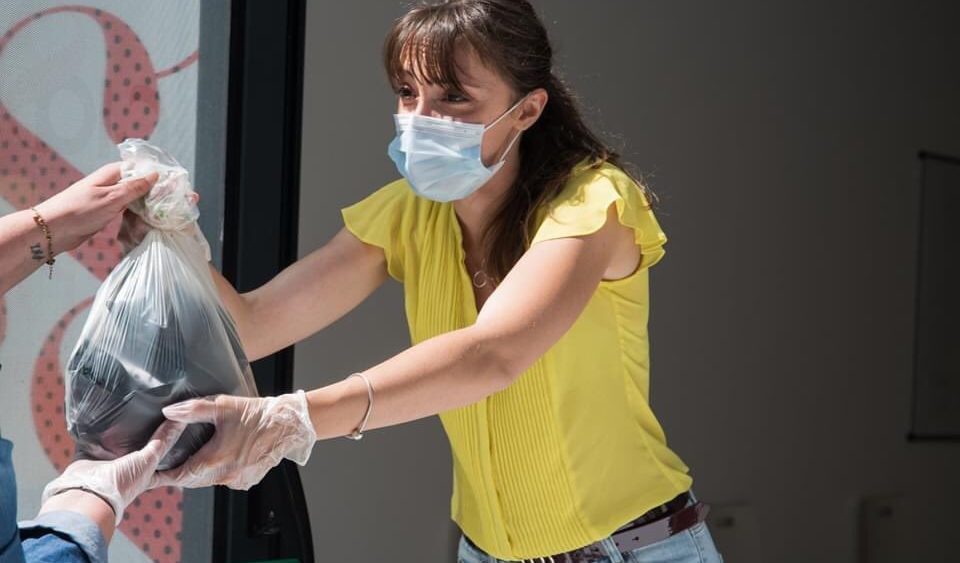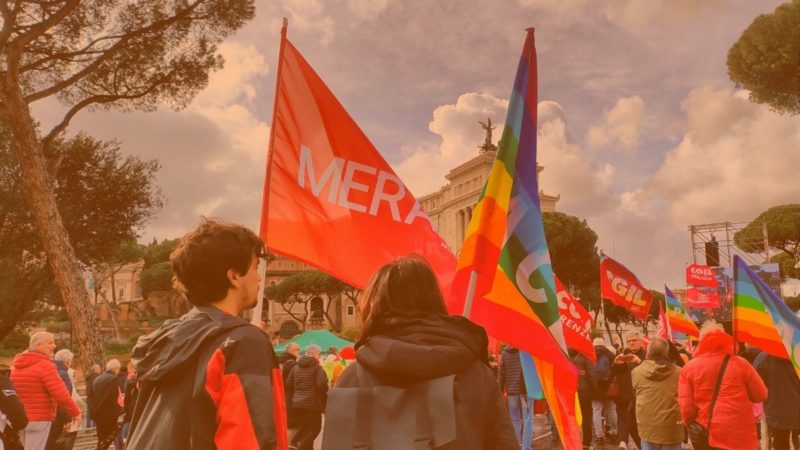The occurrence of COVID-19 has revealed what European States most often try to hide and rely on others to cure: ever increasing poverty in the richest States on the planet.
The quarantine and cessation of economic activities as a result of this pandemic has put “uberised” workers on the frontline, and other kinds of precarious workers at even greater risk.
The COVID-19 crisis also has farther-reaching consequences: for example, the revelation of the scale of the underground economy (whether related to legal or illegal activities) in Europe, which some states prefer to ignore, while others include it in the calculation of their GDP. The increase in unemployment, the reduction in benefits to the unemployed and the increasingly restrictive policies for entering the European Union have led a significant part of the European population to fall back on the underground economy.
By definition, the underground economy consists of undeclared (and therefore also not taxable) economic activities that are difficult to measure. ‘Legal’ underground activities are estimated to account on average for 17% of GDP of, while ‘illegal’ underground activities are estimated to account for at least 3% of GDP. The COVID-19 quarantine and the resulting halt of the free movement of people and goods at both national and cross-border levels has left a significant part of the population without an income.
The first manifestation of this is… hunger!
Beyond a more or less protective social safety net, European states have hypocritically relied upon humanitarian organisations, local associations and even the goodwill of local authorities to take care of those who have been left behind in the event of a hard blow.
But because of the COVID-19 crisis and its economic repercussions, humanitarian organisations and associations, which are already usually overburdened, are currently overwhelmed. These organisations and associations are themselves already suffering the repercussions of certain ultra-liberal policies. For example, one of the first measures taken by the Macron’s government in France, immediately after its election, was to abolish the wealth tax.
In the past, taxpayers who paid this tax could reduce their tax burden by contributing to the budgets of humanitarian organisations. As wealth tax no longer exists, they no longer see any point in doing so, and humanitarian organisations are seeing their budgets significantly reduced. For the first time in its history of 70 years, the Emmaus aid association, for example, is calling for donations.
Schools also used to provide a safety net for vulnerable families that rely on the virtually free school lunch (13 cents per lunch in Paris for the poorest families) to guarantee their children one nutritious meal per day. With schools closed, many families are unable to feed their children, as no meals sold in shops are available at an equivalent price.
In the UK, it is estimated that this could affect 4 million children, i.e. almost 30% of school-age children. The same applies to students throughout Europe who used to eat at university canteens. At the same time, large supermarket chains are taking advantage of the opportunity offered to them by current confinement policies to drastically increase the price of food.
Whether in France, Italy, Spain or elsewhere in the European Union, children are hungry and families can no longer feed themselves. European governments alerted by their respective intelligence services are worried about the repercussions, such as major hunger riots that could explode in southern Italy, in the suburbs of large French or British cities.
These same governments have for decades tolerated the expansion of underground economies by reducing the number of labour inspectors and turning a blind eye to employers not declaring their employees and the trafficking of contraband to avoid social unrest. They have failed to offer lasting solutions such as creating more jobs and legalising immigrants.
Governments now seem to be surprised, or at least worried, about the resulting violence and repercussions of these increasingly ultra-liberal policies of which they were the architects. Worried about hunger riots, some governments are also concerned that criminal organisations may substitute the state in helping citizens and small businesses, and may definitely take roots in large areas of the economy.
Momentum for a Universal Basic Dividend
DiEM25 has, from the outset, advocated not only the end of ultra-liberal policies, but also the introduction of a Universal Basic Dividend (UBD) that would accompany the foreseeable end of the job market as it was traditionally known after the war. It has to be said that although we at DiEM25 have often been labelled as dreamers, now most of our opponents seem to be coming to this exact conclusion.
Japan has just introduced a minimum income for every resident, national or foreigner, to cope with the crisis. Some mayors in California have also tried it and are now pleading to have it implemented nationwide to avoid the worst. Alaska is already offering it statewide. The Democrat candidate Andrew Yang based his platform on this policy.
The UN assistant Secretary General Kanni Wignaraja and the UNDP AP Chief Economist Balazs Horvath are pleading for a universal basic income within the World Economic Forum on 17 April 2020 declaring: “rule number one of crisis management: when you find yourself in a hole, first, stop digging.” They argue that social inequalities end up costing more by way of causing social unrest, mass migrations and the increase of extremist groups capitalising on them. The European Central Bank vice president Luis Guindos mentioned it as well. Even the Pope declared in his Easter letter that it might “be time to consider universal basic wage”.
Two days ago, more than 100 British MPs pleaded for the introduction of a Universal Basic Income (UBI) after 30% of British children have been considered as lacking food; and Spain is taking steps to implement next month a basic income to help citizens weather the economic fallout due to COVID-19. The Spanish minister of economic affairs said “we are going to do it as soon as possible. So it can be useful, not just for this extraordinary situation, and it remains forever.” Other countries in the European Union are thinking about it, and left-wing parties are pushing them to do so. The major counter-argument is the burden put on the taxpayer to finance it.
For the time being, DiEM25 is the only movement offering a solution to the financing argument: we refuse that the universal basic revenue be financed by the taxpayers. That is why we advocate for a Universal Basic Dividend and not simply a Universal Basic Income, i.e. financed in the form of a dividend paid from a portion of shares of listed companies pursuant to stock market transactions or IPOs. We see this dividend as a fair toll payable to the public on stock exchange transactions, particularly from those companies benefiting from state support — shares which would be pooled in a European collective fund that would itself produce a due return.
In the meantime, we would go even a step further in the time of COVID-19: what about ‘helicopter money’ to be created by the ECB: this is totally realistic as it is estimated to 750 billion €, an amount which Lagarde regarded as an amount which can be made available to the banks.
Revolutionary ideas? Not so much — at a historical moment when only creativity and thinking outside of the box will allow European states and their citizens to survive this crisis.
Consider donating to a food bank near you, if you are able to. The image used in this article can be found on Twitter.
Do you want to be informed of DiEM25's actions? Sign up here




